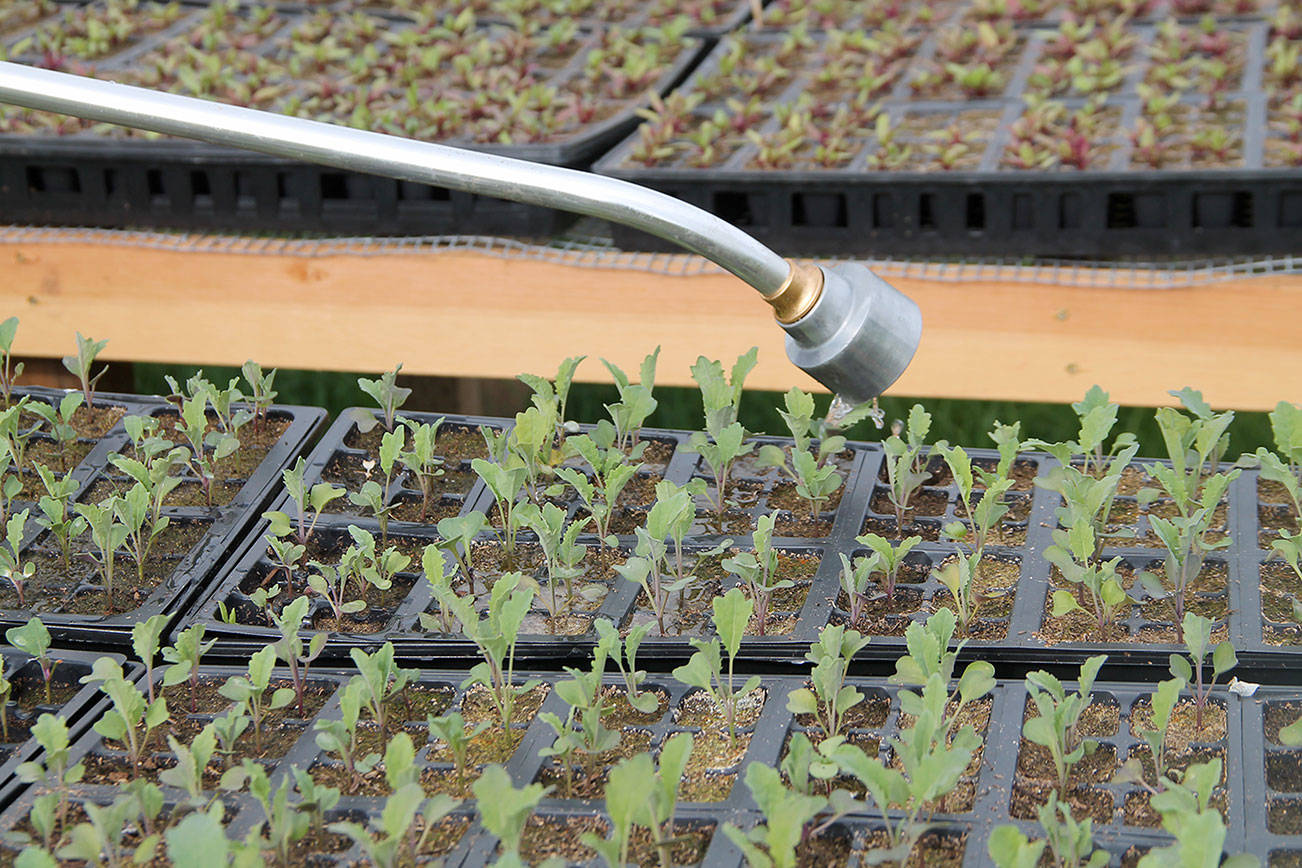Patrons of the Vashon Community Food Bank will soon find an abundance of fresh produce available on the shelves, thanks to a new collaboration with Rotary First Harvest and island farmers.
With grant funding from the King Conservation District, Rotary First Harvest is facilitating a new program that allows food banks to buy wholesale produce grown by farms, including on Vashon. Food bank customers will be able to choose from a range of locally-sourced food they may not otherwise have access to, such as ripe tomatoes, lettuce, broccoli and, someday, garlic.
“Most food banks are rarely in a position to be able to do that,” said Cassidy Berlin, who leads the anti-hunger program Harvest for Vashon, a collaboration of several organizations, including the food bank and Food Access Partnership of the Vashon Island Growers Association (VIGA).
Rotary First Harvest’s King County Farmer’s Share program coordinates direct purchasing agreements between farmers and food banks to make fresh produce more obtainable in areas where people have difficulty accessing it. The nonprofit has worked with the Vashon Community Food Bank in the past on projects such as Grow-a-Row, gleaning fruits and vegetables, and food preservation initiatives.
For her part, Berlin said she was excited that the farmer’s share program is helping to support those in need on the island while dignifying farmers with the compensation for their labor that they deserve.
“To me, to be able to buy locally grown food that has a small carbon footprint, that supports and builds local relationships, is very important,” she said.
Rob Peterson, who owns the 5-acre, USDA-certified organic Plum Forest Farm, said his family is excited to join in — they are now growing 200 heads of lettuce for the food bank and expect to harvest their crops in a few weeks. He emphasized that the farmer’s share program is directly aligned with their values: keeping good produce local, for the benefit of neighbors and the planet.
“A mission of our farm is to grow in a way that is sustainable and regenerative, that we build soil, that we use practices that help a diverse ecosystem because farming generally in our country is a terrible climate offender and local polluter,” he said. “We don’t want this food to just be available for wealthy people, so here’s one opportunity to hopefully make some really good lettuce available [for all].”
Peterson noted that selling wholesale to the food bank earns the farm less than they could earn through other means, but knowing that it supports a worthwhile cause, he said, is invaluable.
“They’ve made it work for us. It’s a win-win for us,” said Peterson, adding that he would like to see the program continue. “If I could do it every year I would.”
At Forest Garden Farm on the north end, also USDA-certified organic, Lisa Hasselman said she and husband Chris Hedgpeth have invested everything they have into the business, recognizing the demand for more locally-grown food on the island.
That is what led them to sign on with the food bank, and now Forest Garden Farm will grow numerous salad greens for the farmer’s share program. She added that they would like to try peppers next season.
“I hope this is just the first step for the food bank and local farms figuring out a way to work together because I think it could be mutually beneficial for both,” she said.
The Plum Forest Farm Farm stand is open weekly in season on 107th Ave between Cemetery Road and 204th Ave. Forest Garden Farm is regularly at the Farmer’s Market and has a farm stand on SW 140th Street off of Vashon Highway.



